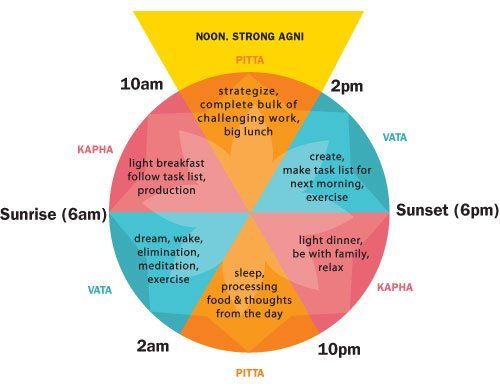Do you ever feel like there’s just not enough time in the day to get everything done? Do you find yourself constantly overwhelmed and stressed out by your to-do list? If so, you’re not alone. Many people struggle with managing their time effectively, but there is a solution: mindful time management.

Obstacles to Mindful Time Management
Mindful time management is the practice of being fully present and intentional with your time. It involves setting priorities and goals, using a planner or calendar to schedule your time, eliminating distractions, taking breaks and rest when needed, and practicing mindfulness meditation to stay focused and calm. By being more mindful of your time, you can increase your productivity, reduce your stress and anxiety levels, and achieve a better work-life balance.
Benefits of Mindful Time Management
The benefits of mindful time management are numerous. Here are just a few ways it can improve your life:
Increased Productivity – When you are intentional with your time and eliminate distractions, you can get more done in less time. This can help you achieve your goals faster and feel more accomplished at the end of the day.
Reduced Stress and Anxiety – When you have a clear plan for your day and feel in control of your time, you are less likely to feel overwhelmed and stressed out. Mindful time management can help you feel calmer and more relaxed, even in the midst of a busy day.
Improved Work-Life Balance – By setting clear boundaries and making time for both work and leisure activities, you can achieve a better balance between your professional and personal life. This can help you feel more fulfilled and happier overall.
Better Decision Making – When you are intentional with your time, you are better able to make informed decisions about how to spend it. This can help you prioritize your goals and make choices that align with your values and vision for your life.
How to Practice Mindful Time Management
Here are some tips for practicing mindful time management:
Set Priorities and Goals – Start by identifying your top priorities and goals for the day, week, or month. Write them down and make sure they align with your overall vision for your life.
Use a Planner or Calendar – Use a planner or calendar to schedule your time and make sure you have enough time to accomplish your goals. Be sure to schedule in breaks and rest time to avoid burnout.
Eliminate Distractions – Minimize distractions by turning off your phone or email notifications and closing unnecessary tabs on your computer. Set aside specific times to check your email or social media.
Take Breaks and Rest – Make sure to take breaks and rest when needed. Taking breaks can actually increase your productivity and help you stay focused.
Practice Mindfulness Meditation – Mindfulness meditation can help you stay focused and calm throughout the day. Set aside a few minutes each day to practice mindfulness meditation.
Common Obstacles to Mindful Time Management
There are several common obstacles to mindful time management that can derail your efforts. Here are a few to watch out for:
Procrastination – Procrastination can be a major obstacle to mindful time management. Break tasks into smaller steps and use the Pomodoro technique to stay focused and avoid procrastination.
Overcommitment – Overcommitting can leave you feeling overwhelmed and stressed out. Learn to say no to additional commitments and prioritize your goals.
Lack of Focus – Lack of focus can make it difficult to stay on track with your goals. Use focus techniques like the Pomodoro method and eliminate distractions to stay focused.
Perfectionism – Perfectionism can be a major obstacle to mindful time management. Embrace imperfection and adjust your expectations to avoid getting stuck in perfectionism.
Tips for Overcoming Obstacles to Mindful Time Management
Overcoming obstacles to mindful time management requires consistent practice and a willingness to make changes. Here are some tips for overcoming common obstacles:
Break Tasks into Smaller Steps – If you find yourself procrastinating or feeling overwhelmed by a task, try breaking it down into smaller steps. This can make it feel more manageable and help you stay focused.
Say No to Additional Commitments – Learn to say no to additional commitments that don’t align with your priorities or goals. This can free up time for the things that are most important to you.
Use Focus Techniques – Focus techniques like the Pomodoro method can help you stay focused and avoid distractions. Set a timer for 25 minutes of focused work, followed by a 5-minute break.
Embrace Imperfection – Perfectionism can hold you back from achieving your goals and can lead to unnecessary stress and anxiety. Embrace imperfection and adjust your expectations to avoid getting stuck in perfectionism.
Consistency is Key
Practicing mindful time management requires consistency and commitment. It’s important to make it a habit and to stay mindful of your time every day. Here are some tips for maintaining consistency:
Start Small – Start by practicing mindful time management for just a few minutes each day and gradually build up to longer periods of time.
Set Reminders – Set reminders on your phone or computer to remind you to stay mindful of your time throughout the day.
Track Your Progress – Keep track of your progress and celebrate your successes. This can help you stay motivated and committed to your goals.
In Conclusion
Mindful time management is a powerful tool for increasing productivity, reducing stress, and achieving a better work-life balance. By being intentional with your time and practicing mindfulness, you can achieve your goals and live a more fulfilling life. Remember to stay consistent and committed to your practice, and don’t be afraid to make adjustments along the way. With practice and patience, you can become a master of mindful time management and achieve your wildest dreams.

